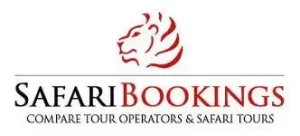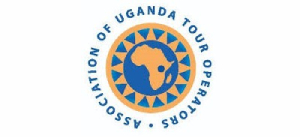What’s the Best Travel Insurance for Safaris?
Embarking on a safari in East Africa or any other part of the continent is a thrilling, life-changing adventure. Whether you’re tracking gorillas in Uganda, witnessing the Great Migration in Tanzania, or gliding through the Okavango Delta in Botswana, the magic of the wild is an experience of a lifetime. However, like any significant trip, a safari comes with its own set of risks. These include unpredictable weather, potential medical emergencies, trip cancellations, and even encounters with wildlife. That’s why having the right travel insurance tailored specifically for safaris is not just recommended—it’s essential.
In this article, we at Great Migration Adventure will guide you through everything you need to know about selecting the best travel insurance for your safari. We’ll explore the key features to look for, break down different types of coverage, recommend trusted providers, and share real-life scenarios to help you understand what might go wrong and how good insurance can come to your rescue.

Why Safari Travel Insurance Is Different
Travel insurance for safaris is more comprehensive than standard travel policies. The activities involved in safaris often fall under “adventure travel”, which may not be covered by general travel insurance. Remote locations, limited access to medical facilities, and the unpredictable nature of wildlife mean you need a policy designed with these specifics in mind.
What Should Safari Travel Insurance Cover?
- Medical Coverage and Evacuation
This is arguably the most critical component of any safari travel insurance policy. You could be hours away from the nearest hospital. Make sure your insurance covers:- Emergency medical expenses
- Medical evacuation (air ambulance if needed)
- Repatriation costs
- Coverage for adventure activities like walking safaris or gorilla trekking
- Trip Cancellation and Interruption
If you need to cancel your trip due to illness, family emergencies, or natural disasters, trip cancellation coverage can reimburse your prepaid, non-refundable expenses. - Loss or Delay of Baggage
Traveling through multiple airports and transfers in remote regions increases the likelihood of luggage going missing. Ensure your policy includes:- Compensation for delayed or lost luggage
- Coverage for essential safari gear (binoculars, cameras, etc.)
- Travel Delay Coverage
Weather, mechanical issues, or other factors can delay your journey. Good policies compensate for extended delays, meals, and accommodation. - COVID-19 Coverage
Post-pandemic, many countries and operators require proof of COVID-19 coverage including quarantine expenses or cancellation due to infection. - Personal Liability
If you accidentally injure someone or damage property while on safari, personal liability insurance will protect you. - Coverage for High-Value Items
Many safari-goers travel with expensive cameras, lenses, or even drones (if permitted). Check if your policy allows coverage for high-value items or offers a “personal effects” rider.
Adventure Activities: Are They Covered?
Not all travel insurance providers automatically cover adventure activities, which are common on safaris. Be sure to verify if your intended activities are included, such as:
- Walking safaris
- Hot air balloon rides
- Canoeing
- Gorilla or chimpanzee trekking
- Climbing Mount Kilimanjaro or Mount Kenya
If not, ask if you can add an adventure sports rider to your policy.
Top Travel Insurance Providers for Safari Travelers
Several international insurance companies are well-regarded for offering reliable and comprehensive safari coverage. Though this list doesn’t endorse any specific brand, these are commonly chosen by safari travelers:
- World Nomads
Popular among adventure travelers, they cover a wide range of activities including safaris, trekking, and diving. They also offer coverage for over 150 countries. - Allianz Global Assistance
Offers customizable plans and excellent medical coverage. Great for families and older travelers. - IMG (International Medical Group)
Their Patriot Travel Medical Insurance is favored for long-term travelers and includes medical evacuation. - SafetyWing
Known for digital nomad-friendly plans, they also cover many safari-related activities. - Travelex Insurance Services
Good for U.S.-based travelers seeking comprehensive coverage and 24/7 support.
Real-Life Safari Scenarios Where Insurance Matters
- Injury from a Fall During a Walking Safari
A guest on a walking safari in South Luangwa slipped on a rocky path and fractured an ankle. With emergency evacuation insurance, she was flown to Lusaka for treatment. - Delayed Luggage with Safari Gear
A traveler heading to the Maasai Mara had luggage delayed for 3 days. Their insurance compensated them for essentials like clothing, insect repellent, and camera rentals. - Cancelled Trip Due to Family Emergency
A traveler canceled his Serengeti safari just 48 hours before departure due to a death in the family. He recovered nearly 80% of his pre-paid costs through his trip cancellation policy. - COVID-19 Infection Abroad
A guest in Rwanda tested positive for COVID-19 and had to quarantine for 10 days. Their insurance covered hotel costs, meals, and rescheduling fees.
Special Considerations for East Africa
When traveling through Kenya, Tanzania, Uganda, or Rwanda, note the following:
- Check Country Requirements: Some countries require travel insurance for entry.
- Cross-Border Travel: Make sure your policy covers multiple countries.
- Altitude Coverage: If trekking or climbing, check for altitude limits.
- Travel Clinics & Vaccinations: Insurance won’t cover pre-departure vaccines; ensure you get Yellow Fever, Hepatitis A, Typhoid, and Malaria prophylaxis beforehand.
How to Choose the Right Policy
- Read the Fine Print
Look for exclusions and limitations. Some policies don’t cover pre-existing conditions. - Understand Deductibles
A lower premium might mean higher deductibles. Choose what you’re comfortable with. - Check Reviews and Claim Process
Opt for providers with a transparent and simple claims process. - Consider a Broker
Travel insurance brokers can help you compare multiple plans and choose the best one.
Family and Group Safari Insurance
If you’re traveling with children or in a group, some providers offer discounts for group policies or family coverage. Be sure to:
- Check if kids under a certain age are covered for free
- Confirm group travel benefits like 24/7 assistance and shared medical evacuation
When to Buy Your Insurance
Ideally, purchase your insurance as soon as you make your first trip deposit. This ensures maximum protection against unforeseen cancellations or changes.
Making a Claim: What You Need to Know
- Keep All Documentation
- Receipts
- Medical reports
- Police reports (for theft)
- Airline and tour operator communications
- Contact Your Insurer Immediately
Most providers have 24/7 hotlines. Call them before incurring expenses whenever possible. - File Promptly
Don’t wait too long to file a claim. Some providers have strict deadlines.
At Great Migration Adventure, we believe your safari should be about discovery, joy, and unforgettable encounters—not stress and uncertainty. The right travel insurance is your safety net, offering peace of mind so you can immerse yourself fully in the magic of the wild.
From medical emergencies to misplaced luggage, the unexpected can happen. But with thoughtful preparation and a robust insurance policy tailored to safari travel, you’ll be well-equipped to handle it all.
Remember, it’s not just about checking a box. It’s about safeguarding your once-in-a-lifetime journey.









